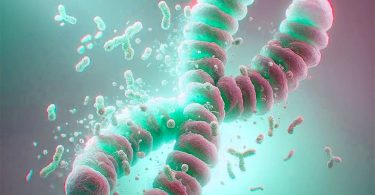Continuous measurement of glucose levels will help assess and prevent a little-known risk of aging.
By continuously measuring blood glucose levels, researchers (1) have discovered that glucose levels vary considerably throughout the day, sometimes reaching pre-diabetic or diabetic levels for a few moments in people with normal blood sugar levels.
This glucose dysregulation, a major factor in aging via glycation, appears to be more widespread and heterogeneous than previously thought.
Continuous glucose monitoring makes it possible to classify individuals according to their level of glycemic response, known as glucotype.
A severe glucotype identifies individuals with aberrant glucose metabolism, people who would have appeared normal according to standard tests but who in fact present a high risk of developing age-related diseases.
This glucose dysregulation – some speak of glucose bio-individuality or glucose fingerprint – is the result of various factors, some of which are controllable:
– Intrinsic: age, gender, genetics…
– Extrinsic: diet, exercise, sleep and stress…
Next step: the use of continuous glucose monitors and the interpretation of their results will enable personalized, intensive lifestyle intervention to prevent accelerated aging and age-related diseases.
© AGE Breaker, updated 11 2023
[Glycation is one of the major causes of aging. Resulting from the fixation of sugars on the proteins constituting the organism, glycation generates toxic compounds that cause cellular aging. Glycation is particularly involved in metabolic disorders, skin aging and cognitive decline.] [AGE Breaker, patented nutritional supplements, based on rosmarinic acid, recognized by aging specialists around the world for their properties to reverse the effects of glycation.]More on www.agebreaker.com
#agebreaker #glycation #antiaging #longevitymedicine #preventivemedicine #preventivehealth #skinaging #4pmedicine #advancedglycationendproducts
(1) : H. Hall et al. Glucotypes reveal new patterns of glucose dysregulation. Plos Biology. Published July 24, 2018. https://doi.org/10.1371/journal.pbio.2005143









